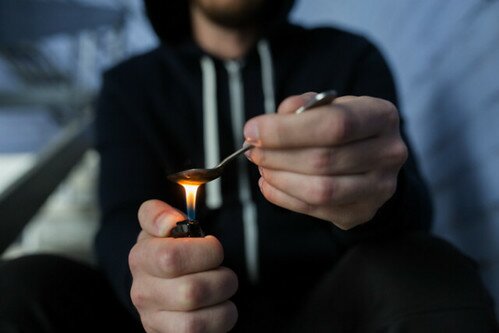Willy, our retired super and part-time Bachata musician, told us that the street used to be a major avenue for drug dealing until Giuliani cleaned it up. He said that one of the local drug dealers once told him, after Willie refused to take money to not report the dealing, “the only reason I haven’t killed you is because you’re a nice guy.”
In the ten years we’ve lived here we have had no problems. This is one of the safest precincts. The neighborhood is mostly Dominican families and gentrifiers like us. The new campus Columbia University is building just south of us is improving the neighborhood.
Willie told the story as we walked up Amsterdam Avenue—Willie, one of his neighbors, my wife and myself—to see our city councilman and complain about the brazen, broad daylight drug dealing that has suddenly appeared on our street. It started a few months ago. At first it was carried out by a middle-aged, dark-skinned man with a slight beard and a pleasant manner. One of the supers mentioned that he was from the neighborhood and had just been released from jail.
As my wife and I walked by him once he smiled and wished us a good day. One of my neighbors whose balcony overlooks the street, a Columbia literature professor who grew up in New York, said he had never seen anything like it. There about twenty junkies standing around the dealer. Then the distributor arrived. The junkies cheered. And the bearded man got to work selling his vials of crack.
The junkies try to steal packages from the lobby, ringing the intercom hoping someone will answer. Now we always go downstairs first to make sure we aren’t letting anyone in who shouldn’t be let in. The supers on the street say they sometimes find junkies sleeping in the garbage areas of their building. One of them has two young daughters and he’s afraid for them. It was getting uncomfortable to walk down the street. When it started, my wife and I walked up the to the precinct to mention it. This had once been the “dirty Thirty,” where in the early 1990s rogue cops were selling the drugs they had seized, back when the neighborhood was known as the “cocaine capital of the world.” The two cops outside the precinct house could not care less about our complaint. They were exhausted from dealing with a week of riots and demoralized by the public having seemingly turned against them. They gave us the card of the community liaison officer and went home.
After a few weeks we noticed that the bearded dealer had been replaced. Instead there was a young kid who looked like he hadn’t yet started shaving. He was rather handsome but one couldn’t help but think that he should be in school not on the sidewalk selling crack. There he was hanging around on the stoops of one of the neighboring buildings with a wad of bills in his hand, sometimes counting them: in broad daylight, unfazed, the ice cream truck up the street pinging out its summer-summoning sound. The kid was often accompanied by a friend, also very young. Once I saw him lounging on one of those new blue scooters that you can rent on your phone in New York now. He had it parked in the shade of a tree. He was chatting with his friend. One hand held that of an attractive young woman, the other the wad of cash. Except for the cash and the crack it reminded me of being young and in love in the languor of summer.
The councilman wasn’t in his office and our little delegation trooped back down Amsterdam discussing our next move. We were afraid that the so-far peaceful dealing might lead to competition that would bring violence. We were disgusted with and nervous about the recent policing policies that the mayor and City Council had made. Our representative, a white, male Harvard graduate, had voted for the bail reform which was one of the most egregious of these. In what way, I wondered, did he represent this community.
A few days later, under the tree where the kid had been lounging on his scooter, there was an array of candles and a note: “brother, we love you, we miss you, you went too soon.” My wife spoke with one of the supers. The first guy, he said, the bearded one, had been arrested on an attempted murder charge. The kid, for whom the candles had been laid out, had shot himself in the head, apparently high on his own product, after his girlfriend left him.
The dealing has stopped for now. I saw a few confused junkies the other day, wandering like zombies looking for their phantom dealer. Now the candles are gone too. We haven’t seen any new dealers yet. I can’t stop thinking about the kid, though. It was as if I knew him.
****
Photo by Find Rehab Centers 



Comments
Leave a Reply